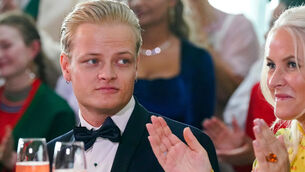Bantry’s classical attraction
THE West Cork Chamber Music Festival should surely have the word ‘International’ inserted in its title. More than 90 musicians from 14 countries will gather at this year’s festival, which begins on Friday, June 24, and they will perform music from 17 countries. If these statistics don’t suggest that this is an international festival, I don’t know what does.
The Bantry festival has given Irish music lovers the opportunity of hearing musicians that we might never hear otherwise, principally because of Francis Humphrys’ seemingly insatiable appetite for worthwhile new music. His curiosity and taste for adventure has brought him to concert halls, recital rooms, and festivals throughout Europe (all at his own expense) and the result has been a constant stream of exciting performers coming to Bantry. Some are on the threshold of a career, others are known principally in their own countries, and, occasionally, we have had the opportunity of hearing world famous performers simply because of the reputation this unique festival has acquired.
















